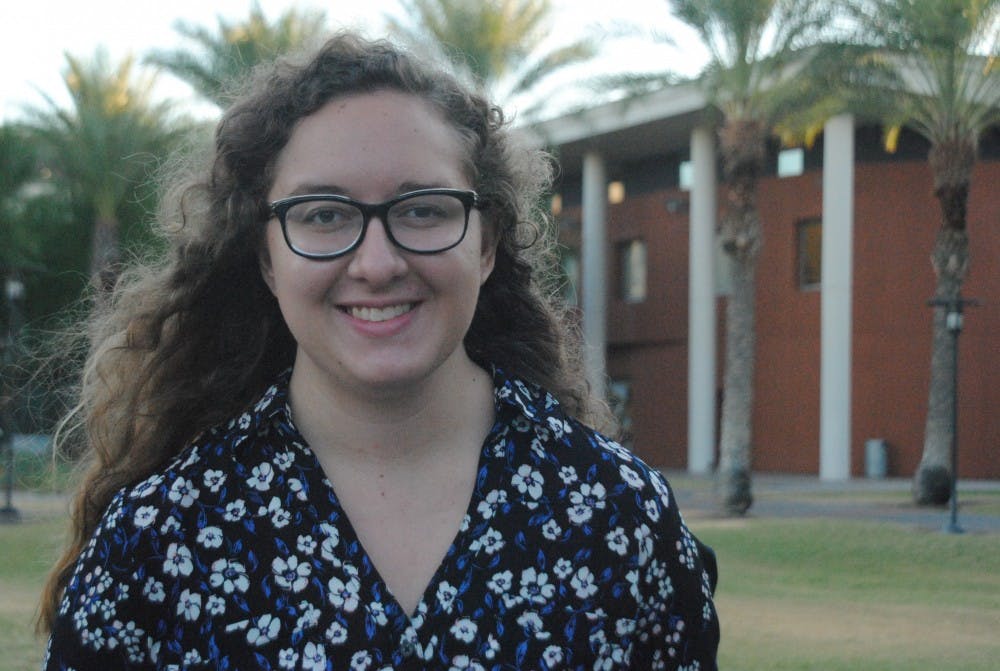As state prisons lose funding nationwide – some unable to provide inmates with writing utensils – the Prison Education Awareness Club has rallied students to support education within prisons.
PEAC is a club dedicated to inmate education and prison reform, which stemmed from the University’s Pen Project, an accredited internship in which students proofread the creative writings of inmates.
Corri Wells, Ph.D, English professor and the club's adviser, said she has been involved with prison education and reform at the University since 2011. She said PEAC is the public face of prison awareness at ASU.
"It’s an opportunity to bring together the facets of American culture that very seldom talk to each other," Wells said. “It's an amazing student organization.”
She said PEAC 's size fluctuates between 10 and 20 members, meets twice a month to discuss prison reform, listens to guest speakers and watches documentaries. It is open to all students.
Brigitte Nicoletti, the club's president and a history senior, said she got involved with PEAC because of a longstanding interest in prison reform.
"It's really fantastic, mostly because the members we have are really passionate about prison education," Nicoletti said. "It's helped me get a lot more involved in that kind of work. I've been doing this kind of work since high school."
She also said PEAC's biggest accomplishment is the annual conference on campus where the club invites guest speakers to discuss prison reform. More than 150 students attended the conference last year.
PEAC Forward from ASU English on Vimeo.
During meetings, experienced members and guest speakers discuss methods of educating inmates. They also have held events with other organizations such as Students for Sensible Drug Policy to discuss mass incarceration and prison education.
This summer break Nicoletti traveled to different countries to observe their prison systems and compare them with the U.S's. She said Switzerland's prison system was one of the least similar systems she encountered.
“It was really cool, (Switzerland’s prison system is) a lot different than the U.S’s prison system,” Nicoletti said. “(Inmates) lived in spaces that were as nice as my apartment, but they were secure.”
Switzerland's system is a restorative one, while the U.S.'s is punitive. Restorative justice is a system of criminal justice that focuses on the rehabilitation of offenders through reconciliation with victims and the community.
She said one of the club's main focuses is promoting restorative justice instead of punitive justice.
Madeleine Ordiway, the club's vice president and an anthropology and history sophomore, said many students don't think about prison reform enough, and the University has a responsibility to help because of its size.
"Inmates are still human beings, they still have hopes and they aren't necessarily horrible people, they just made mistakes," Ordiway said. "ASU is in a very particular situation exemplified by our mission statement, due to our universities large size we can use that to help make a difference in the world."
She said she hopes to increase the club's participation in education donation drives for prisons because some Arizona state prisons no longer supply inmates with paper or pencil.
Nicoletti said this year she hopes to increase membership and push the club's direction toward helping to raise awareness about the problems of juvenile incarceration.
"We want (students) to get engaged in their education and out of that school to prison pipeline," said Brigitte. "We want to bring things together with the Boys and Girls Club and the school districts."
Reach the reporter at Garrison.Murphy@asu.edu or follow @Garrison_Murphy on Twitter.
Like The State Press on Facebook and follow @statepress on Twitter.




